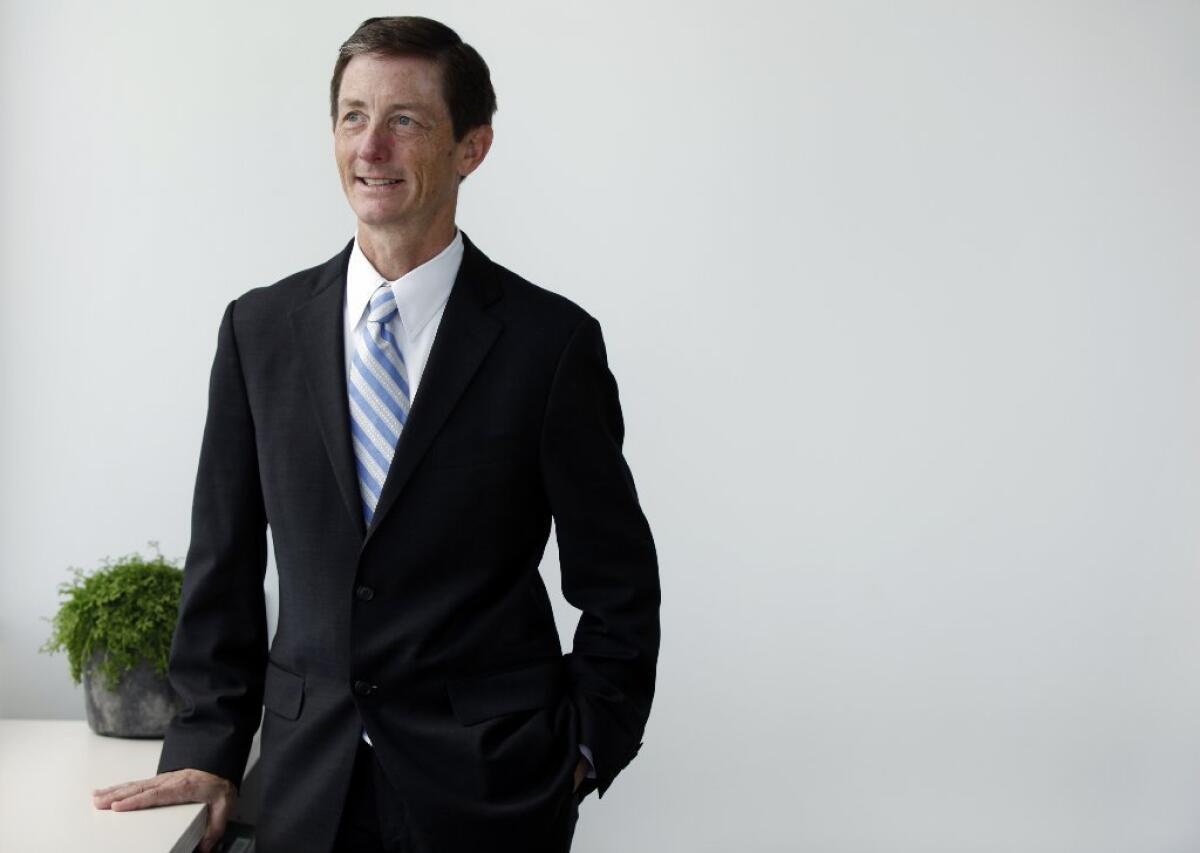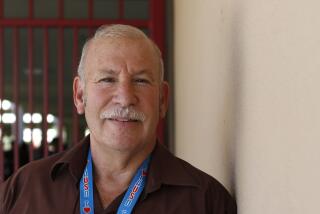Opinion: Classroom discipline: a hard nut for charters, or any schools, to crack

The Broad Foundation first plunged into the roiling waters of school reform in 1999.
And now, along with its multimillion-dollar investments in leadership and superintendents’ training and urban charter schools, it has its first president in all that time: Bruce Reed, a veteran of White House policy and school reform programs under presidents Clinton and Obama.
I interviewed him for my “Patt Morrison Asks” column, which you can read here. One matter I was curious about was school discipline. It’s one thing that makes charter schools distinct; one Chicago charter system takes it to extremes, charging students small fines for repeated infractions like being even a minute late for class.
Discipline problems disrupt classes and deprive other students of worthwhile class time, and rules often severely restrict teachers’ options to restore order.
I asked Reed about that:
“In all the years I worked on education, that has always been an area where parents and teachers have the most concern. Good schools have done a number of things to restore order: In the Clinton years we pushed for school uniforms, curfews, truancy [enforcement], the trifecta of order and discipline” -- “essentials,” he says, for students to understand their responsibilities, and to know who’s in charge and show respect.
Many charters use contracts to lay out parents’ and students’ responsibilities, and “those can be good too.”
Yet good classroom discipline, Reed believes, must be part of a teacher’s toolbox -- “before they go into a classroom, how to command a classroom, how to manage it, how to defuse situations, keep kids in line.
“Those are many of the hardest challenges in parenting, and they’re even harder when they’re not your kids, and there’s a lot of them.”
More to Read
A cure for the common opinion
Get thought-provoking perspectives with our weekly newsletter.
You may occasionally receive promotional content from the Los Angeles Times.







